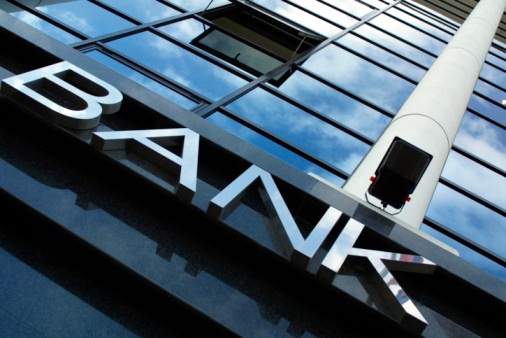Banking, finance, and taxes
Americans' Confidence in Banks Rises -- Gallup
Published:
Last Updated:
Americans generally have distrusted banks. And that lack of trust has been for several good reasons, which usually include high fees for simple matters such as checking account balances and overdrafts. A new Gallup poll shows that banks have had a tiny uptick in favorable ratings, but one that barely is enough to make a difference in terms of reputation.
Gallup reports in a new poll:
Americans’ confidence in U.S. banks increased to 26% in June, up from the record low of 21% a year ago. The percentage of Americans saying they have “a great deal” or “quite a lot” of confidence in U.S. banks is now at its highest point since June 2008, but remains well below its pre-recession level of 41%, measured in June 2007. Between 2007 and 2012, confidence in banks fell by half — 20 percentage points.
The problem for banks has few precedents. It is an American hatred of an institution with which almost all of them do business — and regularly. However, most Americans have few alternatives. There is no direct competition to banks, which means they have effectively trapped a huge customer base of tens of millions of people.
Only a few industries parallel banks in terms of ubiquity and the nearly absolute need of consumers to use them. High on that short list are cable and telephone companies, each of which always get very low ratings with consumers. Apparently monopolies breed poor customer service.
Gallup believes that it can at least hint at a reason for the tiny improvement in confidence in banks:
Americans’ confidence in banks may finally be starting to recover from the recession and financial crisis of 2008-2009. Americans’ perceptions of their banking system generally take a long time to change — as is illustrated by the slow recovery in bank confidence ratings after the Savings and Loan crisis of the late ’80s and early ’90s. Behavioral economics suggests a recovery in perceptions from the biggest financial recession since the Great Depression is likely to take an even longer time.
It is not clear exactly what is driving Americans’ improved confidence in banks, but most authorities agree that U.S. banks did well on their “stress tests” and that banks’ balance sheets are much improved, as are their earnings.
Americans may look back on the financial crisis as a period in which their worry about the institution of banking fell. But, day to day, people do not worry as much about that crisis as they do checking fees.
The last few years made people forget how much banks and CD’s can pay. Meanwhile, interest rates have spiked and many can afford to pay you much more, but most are keeping yields low and hoping you won’t notice.
But there is good news. To win qualified customers, some accounts are paying almost 10x the national average! That’s an incredible way to keep your money safe and earn more at the same time. Our top pick for high yield savings accounts includes other benefits as well. You can earn up to 3.80% with a Checking & Savings Account today Sign up and get up to $300 with direct deposit. No account fees. FDIC Insured.
Click here to see how much more you could be earning on your savings today. It takes just a few minutes to open an account to make your money work for you.
Thank you for reading! Have some feedback for us?
Contact the 24/7 Wall St. editorial team.